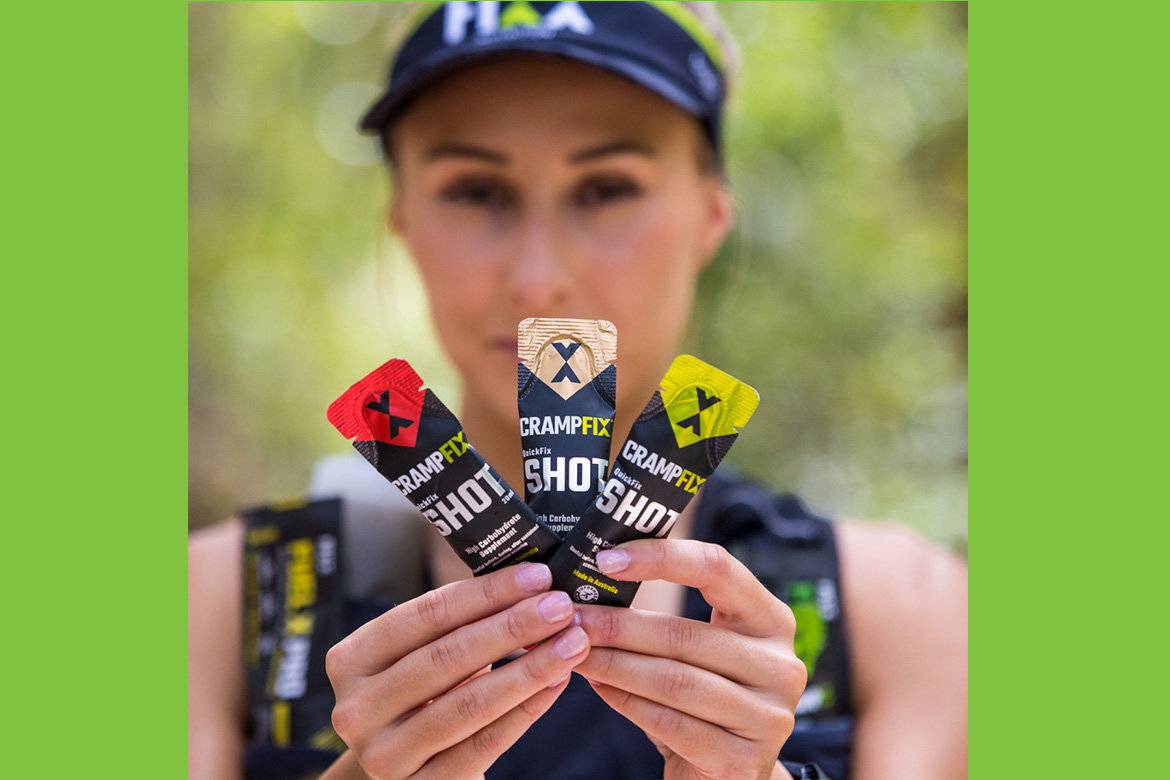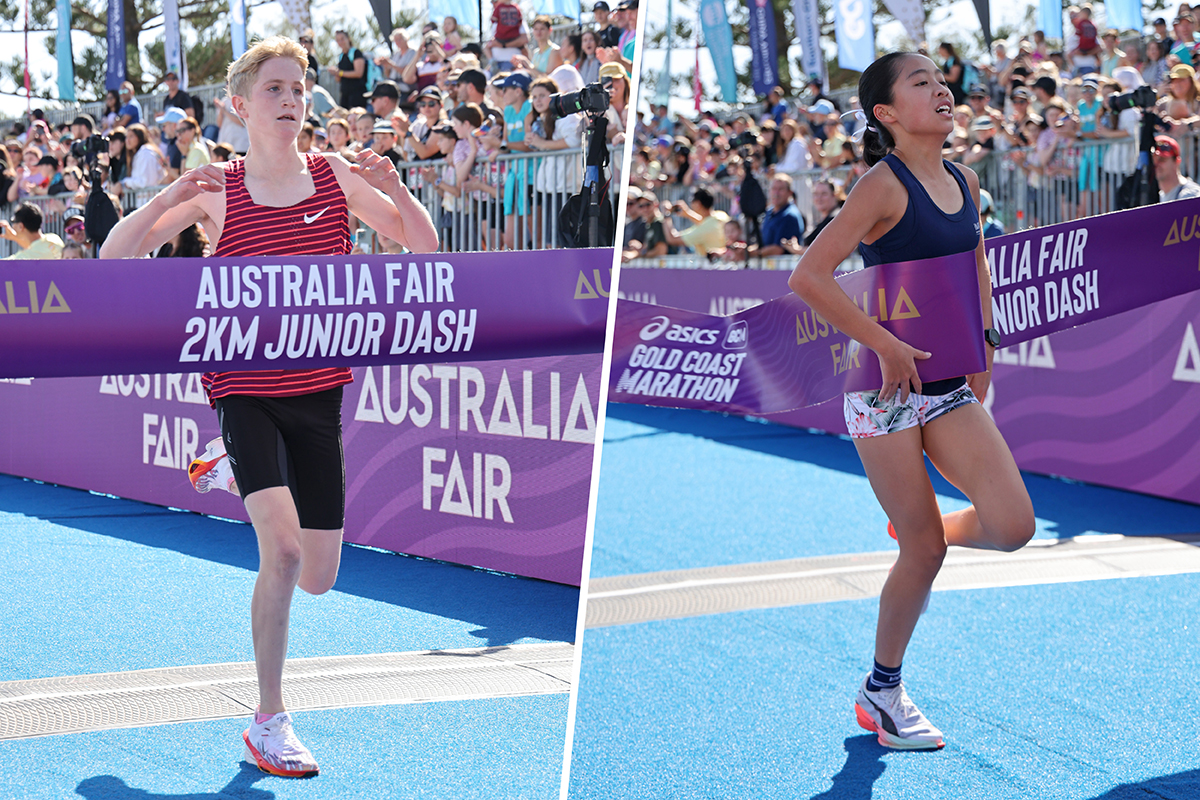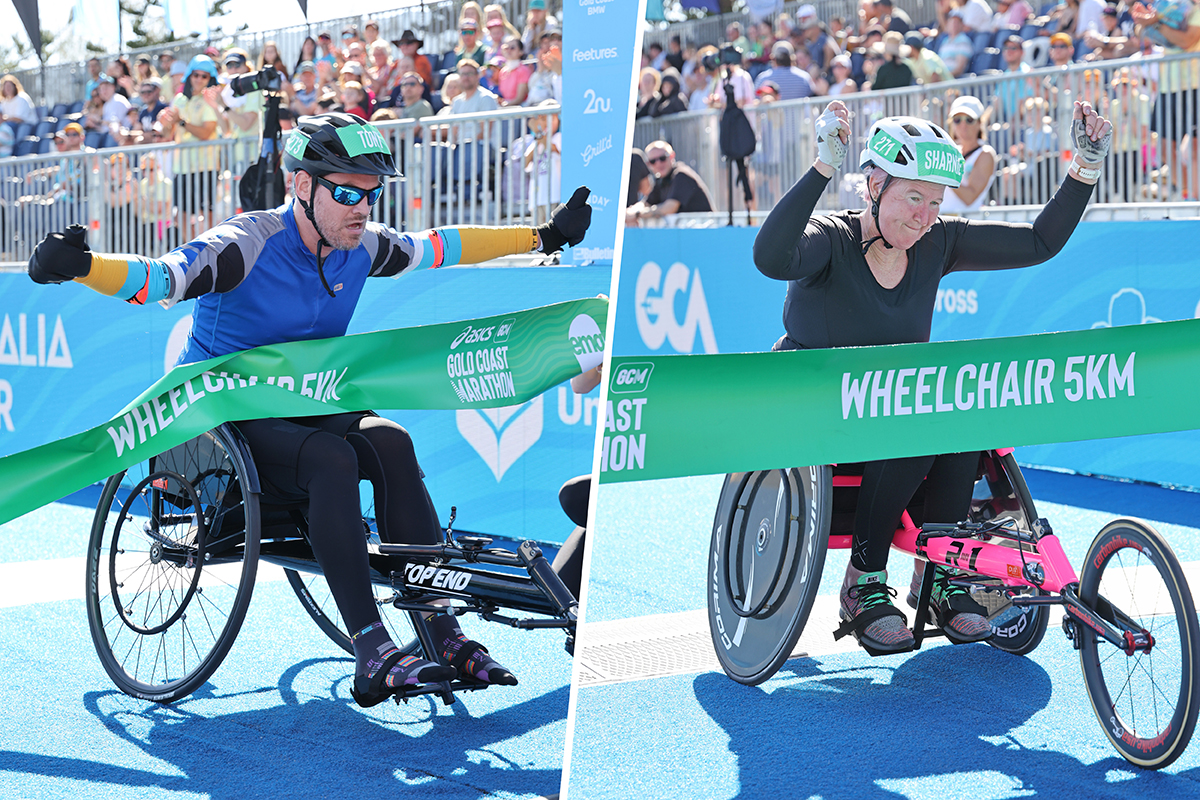In one of the most spectacular wheelchair race performances seen on the Gold Coast course, Victoria’s Sam Rizzo took the men’s 2025 Gold Coast Wheelchair...
Cramps and Running - Things to Keep in Mind Before Race Weekend

Every year since 1979, the Village Roadshow Theme Parks Gold Coast Marathon draws thousands of participants and spectators. Runners traverse 42.195km across some of Australia’s most beautiful, scenic coast.
In addition to a full marathon, the Village Roadshow Theme Parks Gold Coast Marathon also features a 10k wheelchair, 10km, 5k fun run, 4k junior run, half marathon, and wheelchair marathon.
A key part of training is learning how to properly pace yourself, take care of your body and mind, and prevent muscle cramps that could quickly break your stride in the race.
Leg cramps are extremely common among runners and non-athletes alike. But for anyone who intends to run a marathon, being able to stop cramps and prevent them as much as possible is important.
Not only will it help you run your best time, but it will ensure you can enjoy your run to its fullest without dreading the muscle fatigue and shooting pains.
Why You Get Muscle Cramps From Running
Focus is always on the legs when it comes to runners, but running is really a full-body exercise. Though your legs get the greatest workout, it’s important to understand how your entire muscular system comes into play from an athletic standpoint.
Running causes your body to consume energy at a much faster level than it does when you’re going about your everyday life. This energy comes from the food you eat, but it’s distributed to your organs and muscles through your blood.
Because running causes you to sweat heavily, you lose a lot of water, which in turn affects the speed of your circulatory system.
As blood circulation slows, the body begins to shift its priorities to sustaining your heart, lungs, and other vital organs.
This means your muscles receive less of the energy they need, especially during high-performance exercise. As a result, they begin to break down glucose into energy, but this can lead to a build-up of lactic acid.
Without adequate hydration and energy, muscles are more prone to seize and get stuck in a painful contraction. This leads to the agonising painful cramps you get through your legs and feet.
Runner’s Leg Cramps: Top Causes and Prevention
Runners can experience leg cramps for several reasons. Working these prevention tips into your training regime can help protect your muscles and lower your risk of stride-stopping cramps mid-marathon.
1. Dehydration
Lack of fluids can result in nausea, dizziness, stomach cramps, and muscular cramps. Runners are prone to dehydration, especially when they’re giving it their all under the Queensland sun in July.
While there is no telltale reason why cramps happen when they do, science shows that dehydration leads to electrolyte depletion. The body needs electrolytes to regulate muscle and nerve functions, balance blood acidity levels, keep blood pressure stabilised, and repair damaged tissues.
The term “electrolytes” aptly describes the electric tissues that the minerals fuel. Sodium, magnesium, and potassium are three major electrolytes you need, especially as a runner.
Fixx Nutrition produce a high quality electrolyte that includes all the necessary minerals to help prevent dehydration. Fuel X in tropical flavour will be on course at every second aid station mixed at the correct ratio for full benefit. Help yourself to a cup along the way to fuel your body with electrolytes, carbohydrates and calories. Wearing a hydration vest or running belt with soft flasks can ensure you have enough fluids in reach at all times, especially beneficial during long training runs.
You should also calculate your fluid loss after the race so you can rehydrate properly. Losing 1 kg through sweat requires 1L of water. It helps to calculate your sweat loss to learn how to hydrate yourself afterward in a safe manner.
2. Muscle Fatigue
Running takes a lot out of your muscles, especially when you’re using them for a long stretch of time. Runners spend 2 or more hours completing the Gold Coast Marathon; that means you’ll need to build strength and endurance months before the big day.
However, even well-trained runners can still suffer from muscle fatigue. Dehydration can accelerate the process, making your muscles run out of energy more quickly and, ultimately, more likely to cramp.
How to Prevent Muscle Fatigue: The best way to prevent muscle fatigue during a marathon is to train for long-distance running. Rather than worrying about being the fastest, you need to ensure your body is capable of covering long distances at a steady, safe pace.
You can also strength train to help build muscles that are able to withstand fast, demanding exercise. Weaker muscles are more likely to misfire and cramp when they’re suddenly thrust into action.
3. Improper or No Stretching
Warm-up stretches for runners activate the muscles they’ll rely on throughout the marathon. Pay extra attention to your legs, namely your hamstrings, quads and hip flexors. You should get into the habit of warming up for at least 20 minutes before the race.
Most runners suggest brisk walking to get your body geared up for the long stretch ahead.
The best stretches for running include:
- High knees
- Butt kicks
- Calf stretches
- Hamstring stretches
- Quad stretches
Yoga for runners can also help strengthen muscles, build flexibility, and serve beneficial before any run or marathon. How to Stretch Properly: Make sure you use a combination of static and dynamic stretches before the race. You should also choose stretches that activate your core running muscles.
Should You Drink Electrolytes Before a Marathon?
You should definitely increase your electrolyte intake before the marathon.
Hydration is crucial to preventing and alleviating muscle cramps at any point during a running session. Fixx Nutrition's Fuel X and Fuel X Pro that contains pharmaceutical grade amino acids is key to preventing dehydration by replenishing vital electrolytes and keeping athletes energised with the right amount of carbohydrates to prevent cramping.
However, if you are stuck, Fixx Nutrition’s CrampFix is the premiere solution for Australian runners and athletes. Using a science-backed, specialised formula, CrampFix can stop even the toughest muscle cramps in 30 seconds to 2 minutes.
The secret? It uses the same science to relieve cramps based around the remedy of pickle juice. That’s right — using the same natural ingredients as the ultimate home cramp remedy, we’ve crafted a high-performance product designed to provide quick relief, so you can stop cramping fast and keep your mind on the track.
If you’d like to learn more, read the full Fixx Nutrition story to discover how we wound up building one of Australia’s most trusted sports products right out of Queensland. You can also shop CrampFix sports products to stock up for the race. Available for sale are individual 20ml sachets or 3-5 serve soft bottles that have a flip top lid for easy use.





























